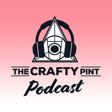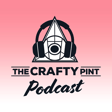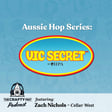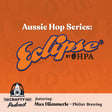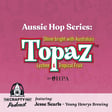
Charlie Bamforth: A Life In Beer
"I’m the one who can have a beer and advertise my endowment. The Edward Teller professor of nuclear physics is not walking around with uranium. And you can join the pet food industry, but on a Friday night you can’t have a few cans of Chum."
Charlie Bamforth is a name and voice familiar to many in the beer world. He’s one of beer’s great storytellers and has worked in the industry since 1978, the year he started at the Brewing Research Foundation before moving to Bass in the UK.
He later spent decades as a professor of brewing at UC Davis in the States, teaching countless students the science of beer. Today, he’s Senior Quality Advisor at the legendary Sierra Nevada after an attempt at retirement was foiled by an offer from his old mate Ken Grossman.
Will and Craig caught up with Charlie while in Hobart for the CIBD conference earlier in the year for a chat about his life in beer, his experience teaching and working at Sierra Nevada, and his passion for the liquid he’s spent his life around.
Prior to the interview, James and Will discuss the week’s news, including Mountain Culture’s purchase of Fox Friday, our story on KAIJU!’s blossoming love for lager, and our features on two of beer’s rising stars: Julia Santos Muriel and Anaya Summer.
Don’t forget to like and subscribe to the show, and listen out to discover the identity of our latest Bluestone Yeast Brewery of the Month.
Start of segments:
- 13:55 – Charlie Bamforth Part 1
- 32:04 – Bluestone Yeast Brewery of the Month
- 37:50 – Charlie Bamforth Part 2
Relevant links:
- The Pope of Foam
- Mountain Culture Acquire Fox Friday
- The Metamorphosis of KAIJU!
- Brew & A: Julia Santos Muriel
- Anaya Summer Slays Beer
- Nominate a Brewery of the Month
- Cryer Malt
To find out more about featuring on The Crafty Pint Podcast or otherwise partnering with The Crafty Pint, contact craig@craftypint.com.
